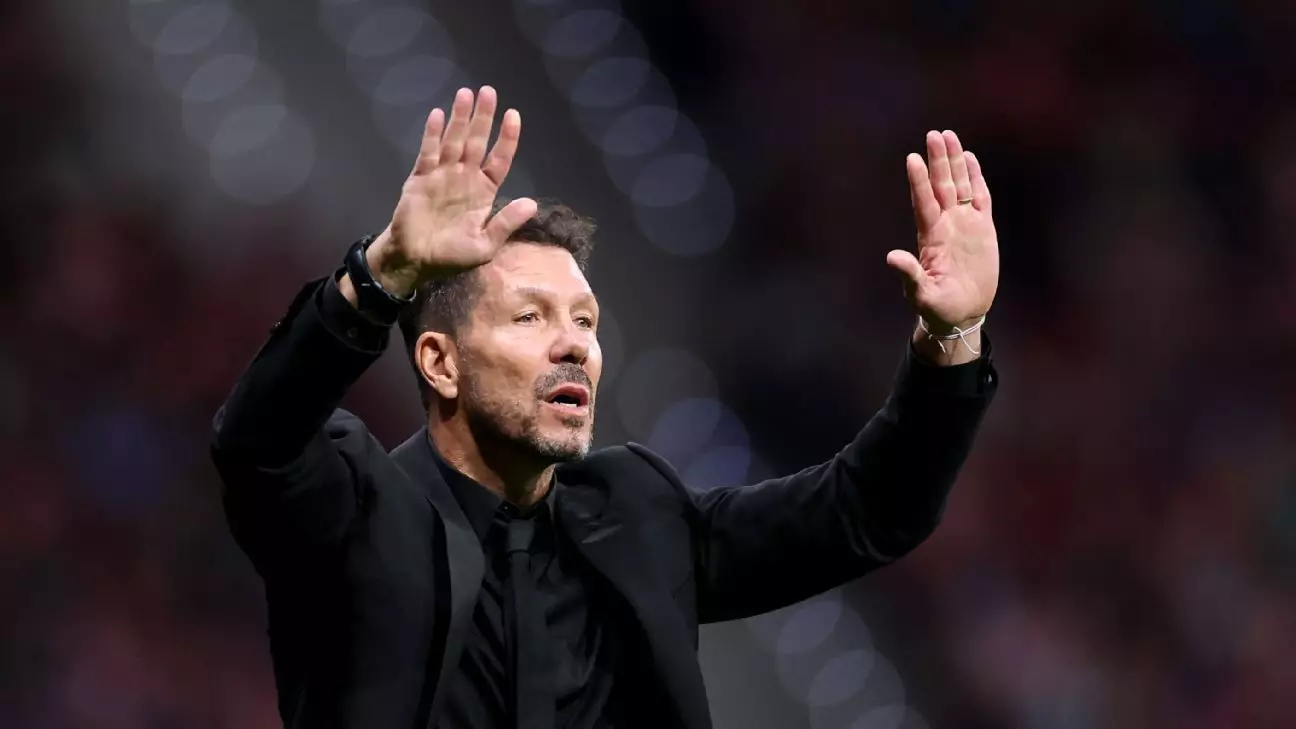The recent clash between Atlético Madrid and Real Madrid in LaLiga was not solely defined by on-field dynamics, but by distressing incidents that overshadowed the match. When passionate fans turned hostile, throwing objects onto the pitch, it led to the temporary suspension of the game. This interruption occurred in the 64th minute when Real Madrid’s Éder Militão scored, eliciting fervent reactions that escalated to unacceptable behavior. Such actions raised significant questions about fan engagement, player conduct, and overall responsibility in modern football.
The atmosphere within the Metropolitano Stadium, with over 70,000 attendees, shifted dramatically following the interruption. The ejection of lighters and plastic bottles from the stands was a stark reminder of how deeply emotions can influence behavior in high-stakes environments. The fans’ frustrations were palpable, accentuated by the pivotal moment of the match when Militão’s goal shifted the momentum. However, the subsequent suspension and urgent intervention from authorities underscored a growing willingness to confront unruly conduct, no matter its origins.
In the wake of the disruptions, Atlético Madrid’s coach, Diego Simeone, issued a pointed critique of both the fans and the players. He acknowledged that while the actions of those throwing objects were inexcusable, there exists a reciprocal responsibility among players to manage how they interact with the crowd. Simeone explicitly called out Real Madrid’s goalkeeper, Thibaut Courtois, attributing part of the blame for provoking such hostility through exuberant celebrations. This perspective advocates for an awareness that players must maintain, emphasizing a shared culture of respect between athletes and supporters.
His insistence on wearing both sides of the issue underlines a broader narrative within football—a calling for self-regulation. The coach remarked on the need for players to soften their interactions with fans, particularly during heated moments. It raises the importance of considering the ramifications of celebrating victories or engaging in provocative gestures. Simeone’s admonishment serves as a reminder that the emotions tied to sport, while exhilarating, must not devolve into antagonistic exchanges.
The game’s suspension marked a significant turning point not just for Atlético Madrid, but for the wider football community. It highlights the crucial role that clubs and their administrations play in fostering safe and conducive environments for both players and fans. Atlético’s swift response post-match, stating that they were working with law enforcement to identify those responsible for the disturbances, indicates a commitment to accountability. Such proactive measures are essential to restoring faith among supporters who behave respectfully and cherish their teams.
Moreover, the necessity for broader actions against racism within the sport was underscored in the days leading up to the match. The incident not only brought fan conduct into sharp focus but also spotlighted the alarming trend of discriminatory behavior. Following a campaign that sought to encourage anonymous racist chants during the derby, LaLiga announced its intention to combat such movements decisively. This response encapsulates the league’s recognition of its critical role in shaping a respectful sporting culture.
Carlo Ancelotti, Real Madrid’s head coach, supported the referee’s judgment to halt play amidst the chaos. His response exemplifies the need for collaborative management in confronting such issues, underscoring that all parties—clubs, officials, and players—must work in unison to promote a positive matchday experience. While suspending a game is always a last resort, it is necessary when safety is breached, and Ancelotti’s endorsement of this measure emphasizes the gravity of the situation.
The unfolding of events during this match serves as a catalyst for conversations around respect, responsibility, and the culture surrounding football. In essence, football should be a spectacle that unites communities. However, incidents of hostility have the potential to fracture this bond, necessitating a collective determination to uphold respect both on and off the pitch.
The events from this match highlight a profound need for change within football culture, where passion for the game must be channeled into sportsmanship rather than aggression. With supporters and players together shaping a collaborative atmosphere, the goal is to ensure that football remains the beautiful game it is intended to be. In concluding, it is imperative for all stakeholders in the world of football to engage in thoughtful reflections about their role in fostering environments where respect reigns supreme, ultimately overshadowing the darker shadows of incidents that threaten the integrity of the sport.


Leave a Reply